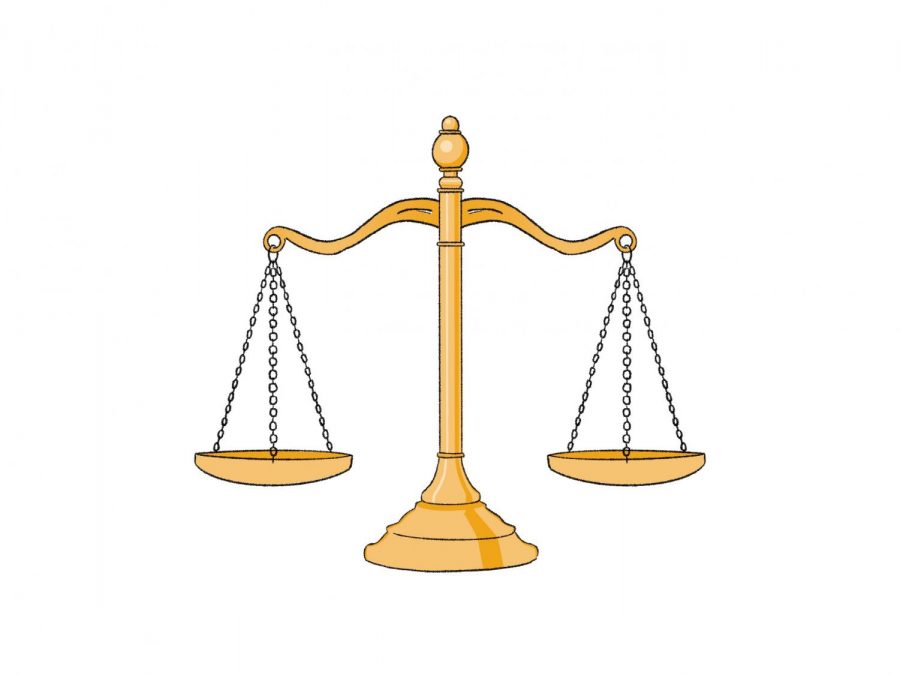Have you ever looked at another person’s flaws and immediately dismissed, judged or condemned them when you’ve done the same thing, something similar to it or something of the same caliber?
The next time you want to pass judgment on someone, remember the following story taken from the Gospel according to Saint John.
The Pharisees, an ancient Jewish group that clung to the Mosaic law with strictness, brought a woman caught in an adulterous act to Jesus while He was sitting in a temple teaching His followers. The Pharisees reminded Jesus that the Mosaic law states that adultery is punished through stoning.
Wishing to test Jesus, the Pharisees asked Him what He thought should be done. Jesus stooped to the ground and began writing on the ground with His finger in silence. When the Pharisees questioned Him again, He stood up and spoke, saying, “He who is without sin among you, let him throw a stone at her first.” He then stooped down to the ground again and continued writing with his finger.
The Pharisees, realizing that they are not without sin, began to leave one by one starting with the oldest. After some time went by, Jesus was left alone with the adulterous woman. Jesus stood up and asked her, “Woman, where are those accusers of yours? Has no one condemned you?”
“No one, Lord,” She said.
“Neither do I condemn you; go and sin no more,” Jesus replied.
While judging may make you feel good for a little while or give you a good laugh as you secretly get over your own faults, the person you judged isn’t going to make a single change in their life nor will you understand the situation that brought them to a fault in the first place.
I believe there are three key things we can do that are more helpful than judging others.
- Understand you are not perfect
If you don’t want to help your peers improve themselves or understand the position they hold — no matter the magnitude — the least you can do is recognize that you are not perfect.
This may seem obvious but far too many people — myself included at times — believe they are God’s gift to earth and thus judge and condemn others for their faults.
The cure for this type of arrogance is to remember your own faults when you wish to pass judgments on someone, much like the Pharisees did after being rebuked by Christ.
In some way, I suspect you’ve done the same thing as the person you’re condemning. Take a moment and ask yourself if you’ve ever had the intent or the emotional capacity in your heart to do what they’ve done.
- Understand the other person
After taking a look at yourself and realizing you’re not perfect, you can do the next most productive thing instead of judging people; try to understand them as a person.
I’m convinced a majority of problems with other people stem from a lack of communication and understanding. I guarantee the world would be less judgmental and we’d have fewer people we consider “enemies” or “the opposition” if we could take a moment to stop and understand whomever we wish to judge.
On the other hand, true understanding doesn’t come from understanding the arguments of others, it comes from understanding a person’s heart, past and soul, which can only be accomplished through open, honest and loving dialogue.
Ask yourself: Am I able to communicate with my enemy and try to understand them?
Am I able to sit down and talk with somebody I wished to judge in a loving way?
Am I able to cast aside my own preconceived notions of the individual and who they are in order to understand them and their position?
- Offer advice and help
Once you truly understand the other person and why they are the way they are, you can offer to help them with their flaws. Ultimately, how can you truly help someone you don’t understand on a deep level? You can try, but the advice may be shallow and fruitless.
Keep in mind, just because you offer advice and assistance doesn’t mean the person will take it, but it does mean you tried. If they don’t want your help, rejoice in the fact that you have a deeper understanding of another human being.
However, I would rather try and fail to help my fellow man than to judge, condemn and scorn them.
To conclude, ask yourself something: we live in an extraordinarily polarized and judgmental era — are you going to continue to contribute to the chaos, rage and turmoil we see on a daily basis?
I regret contributing to the constant bickering and strife we see in the world today and in turn, I always try my best to kick myself off of my high-horse in order to understand and help anybody I can without passing judgment.
Help make the world a better place. Throw your judgments away and open your heart.
Jermelle Macleod is a junior studying journalism.











